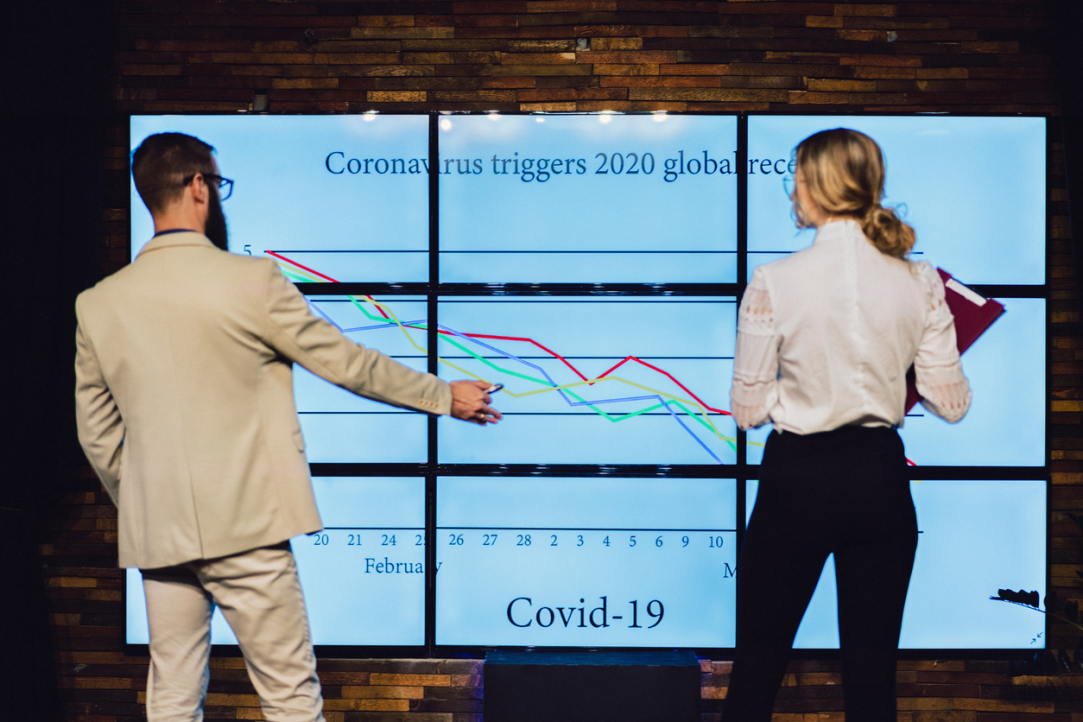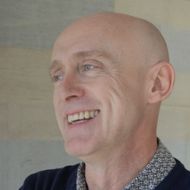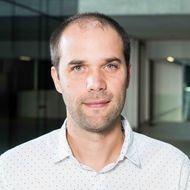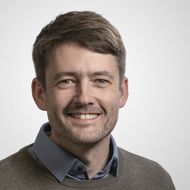New Inequality, Environmental Impact and Other Consequences of the Coronavirus Pandemic: III ICEF Conference on Applied Economics Focuses on COVID-19

This year, the ICEF Conference on Applied Economics will be held online for the first time ever. On September 12, experts from around the world will discuss the impact of the coronavirus pandemic on the global economy. The HSE News Services describes the papers that will be presented and why the organizers decided to devote this event to COVID-19.
The Conference on Applied Economics is being organized at ICEF for the third time. This year, it will not only be held online for the first time, but will also feature papers on a common topic — the current coronavirus pandemic (previously, the organizers selected papers based on the quality of submissions, rather than a single topic).
Fabian Slonimczyk, Associate Professor, ICEF, member of the conference’s organizing committee

The third conference will focus on the COVID pandemic, as this negative shock has had an outsize effect on literally the whole world economy. There are literally hundreds of good papers on the pandemic being published at the moment, so it made sense to let the conference reflect that reality. It was tough to select the papers for the conference. There are so many great papers on the pandemic being published at the moment! But I believe we have managed to put together a really nice set of papers, covering a range of aspects of the pandemic.
Conference participants will look at such issues as the difficult situation on the labour market, the impact of air pollution on COVID mortality, growing gender inequality in paid and unpaid work, and optimal unemployment benefits in the pandemic. Research groups from German, Spanish, Italian, and American universities will present their reports on the most critical issue of 2020.
Professor Slonimczyk believes that online events have the potential to reach a much wider audience. However, he hopes that in the future the offline format will be back. ‘Meeting people in person is not something we want to give up forever. It would be great if somehow we manage to get the best of both worlds, holding the event in Moscow but also broadcasting it online,’ comments Professor Slonimczyk.
Marco Francesconi, Professor of Department of Economics, University of Essex; member of the conference's organizing committee

Compared to previous editions of this conference, almost everything is different, except, of course, the high quality of the participants. Given the expertise and scientific experience of the presenters and discussants and given the content of the programme on Covid-19 issues, I expect to see an interesting exchange of ideas and a debate on policy relevant issues. Quite likely, these will have important ramifications for public policy initiatives in many countries around the world.
Thomas Le Barbanchon, Associate Professor, Department of Economics at Bocconi University

This conference will be my first contact with HSE. My paper is entitled ‘Job Search during the COVID-19 Crisis’. This is joint work with Lena Hensvik (Uppsala university), and Roland Rathelot (University of Warwick). This paper measures the job-search responses to the COVID-19 pandemic using real-time data on vacancy postings and ad views on Sweden's largest online job board. Overall, job search responses have the potential to amplify the labour demand shock. I chose this topic because of the current debate on how the COVID crisis impacts labor markets.
I expect economic research on the immediate reaction to the COVID crisis (during Spring 2020) to deepen thanks to the release of more accurate data on this period. New questions on the medium-run impacts will also certainly come about after Summer 2020. I see inequalities as a centerpiece of this new agenda. I would like to expand our understanding of the job search response during the current crisis to other countries than Sweden (the country of interest in my paper to be presented).
Libertad González, Associate Professor of Economics at Universitat Pompeu Fabra and Barcelona GSE

I was invited to the conference by Fabian Slonimczyk. I will talk about the results from a survey that we conducted on 5,000 Spanish households in May 2020, during the covid-19 lockdown. We wanted to understand how the lockdown combined with school closures affected the time allocation of men and women, with a particular focus on two-parent households with children.
I chose to work on this project because I honestly found it very hard to focus on research during the lockdown, with my children at home and the stress generated by the news of the pandemic. All I could do was to take care of my family, read the news, and worry. I found that working on a covid-related project was one way of feeling like I was doing something useful, and it was something that I was able to focus on during those tough months.
I have several covid-related projects that I'm working on, some related to gender and the labor market, and others on child outcomes. I'm also still working on my previous projects of course, such as the one on the effect of paternity leave on children's attitudes towards gender roles.
I think the reduction in travel and the increase in online events will be permanent, even though hopefully at some point we will be able to have in-person conferences and seminars again. Many of us will also be working from home much more than before, now that we know it can be done.
Dr. Ingo E. Isphording, Senior Research Associate & Team Leader at the Institute of Labor Economics, Bonn

The paper I will present is more a niche topic for me. Together with my co-author Nico Pestel, who is an expert on the productivity effects of air pollution, we study the impact of short-term exposure to ambient air pollution on the spread and severity of COVID-19 in Germany. We compare changes in deaths by population with local changes in air quality. We find significant positive effects of higher air pollution on COVID-19 deaths specifically for elderly patients (80+ years).
Our results imply that moving patients at risk aged 60 and above out of more heavily polluted areas might be a way to reduce the number of deaths by COVID-19. This implication might be of specific importance when the pandemic unfolds in less-developed world regions where air pollution and associated health risks are of much higher importance.
As for the changes in our lives due to the pandemic, I guess we will travel less, and I am looking forward to this. I always enjoyed conferences and seminar stays, but it is true that economists who should know best hardly ever internalized the huge external environmental costs they caused by their business travels.
See also:
Economists Suggest Using Media's Attention to Bitcoin to Predict its Returns
Researchers at the HSE Faculty of Economic Sciences have studied the relationship between the changes in the bitcoin prices and the media attention to this cryptocurrency. The researchers examined the mentions of bitcoin in the media between 2017 and 2021 and built a mathematical model that revealed the strong relationship between media attention and bitcoin prices. The study was published in the Applied Stochastic Models in Business and Industry journal.
HSE Economists Develop a Model for Sustainable Solar Geoengineering Agreements
Researchers at HSE University and George Mason University have investigated the sustainability of prospective international agreements on solar geoengineering. The authors have proposed a scheme in which payments flow from affluent nations to less wealthy ones; an arrangement which sets their proposal apart from traditional systems. The proposed model aims to dissuade more vulnerable countries from excessive use of the prevalent geoengineering method by providing compensation for the potential damage they may incur and supporting their adaptation to climate change. The paper has been published in Environmental and Resource Economics.
Crypto Investors Receive Downside Risk Premiums
Victoria Dobrynskaya, Assistant Professor at the HSE Faculty of Economic Sciences, has analysed the price dynamics of 2,000 cryptocurrencies from 2014 to 2021 and investigated the association between downside risks and average returns in the cryptocurrency market. As it turns out, cryptocurrencies exhibiting a greater risk tend to yield higher average returns. The study has been published in International Review of Financial Analysis.
Results of the Contest to Predict Nobel Prize Winners in Economics
Claudia Goldin's award was predicted by five people. They are Olga Peresypkina (RSVPU), Anastasia Sirotina (first-year student of the Bachelor's in Applied Mathematics and Information Science at HSE University), Mikhail Shabanov (Global Vision Asset Management LLC), Tatul Hayrapetyan (PhD student at the Stanford Graduate School of Business), and Hemant Kumar (Ettumanoorappan College, Kerala, India).
Financial Sector Risks Can Hinder Transition to Green Economy
According to HSE and MGIMO economists, increased financial sector risks in developed countries may be associated with a higher carbon footprint in banks' loan portfolios. This is likely due to the fact that in response to an unstable economic situation, banks tend to issue more loans to companies that have a detrimental impact on the environment. Although this might yield short-term profits for the banks, such trends hinder humanity's progress towards achieving a green economy. The paper has been published in Environmental Science and Pollution Research.
Winner of 2023 Nobel Prize in Economics Announced
The Royal Swedish Academy of Sciences has awarded the Sveriges Riksbank Prize in Economic Sciences in Memory of Alfred Nobel 2023 to Claudia Goldin (Harvard University, Cambridge, MA, USA), ‘for having advanced our understanding of women’s labour market outcomes.’ According to the Nobel committee, Professor Goldin has uncovered key factors that determine gender differences in the labour market.
Millennials Are Three Times Ahead of Zoomers in the Monetised Creator Economy. Even Boomers Outperform Them. Okay Then…
A group of specialists from the HSE Institute for Cultural Studies, Vitaly Kurennoy, Alexander Suvalko and Maria Figura, have determined two main trends that are actively shaping the image of the creative economy and culture in 2021-2023: the creator economy and the maker economy.
Teaching Masters' Students and Conducting Lectures in English Boost Academic Productivity
HSE researchers have analysed teaching load data at the HSE campus in St Petersburg to investigate the potential impact of teaching on faculty research output. They found that factors such as teaching primarily masters' courses, conducting 20% of lectures in English, and supervising only one doctoral student per year were associated with a greater likelihood of producing more high-quality academic papers. The study has been published in Higher Education Quarterly.
'HSE Paved My Road to Harvard'
Nargiz Mammadova, from Azerbaijan, is a 2022 graduate of the Economics: Research Programme and a finalist of the Global Essay Competition in St. Gallen. As she prepares to start her Master of Public Administration in International Development programme at Harvard in August 2023, Nargiz reflects on her time studying at HSE University during the COVID-19 pandemic, talks about her work for the State Oil Fund of Azerbaijan, and shares an important message for future students.
Income and Cost of Living Distribution Found to Be Similar in Russia and US
Researchers at the HSE Faculty of Economic Sciences Laboratory for Wealth Measurement analysed income and cost of living data at the sub-regional level in Russia (municipalities) and in the US (counties). The study reveals that territorial differences in the cost of living are more pronounced in Russia compared to the United States. However, the distribution of overall income across settlements of varying sizes is quite comparable in both countries. The article has been published in the HSE Economic Journal.


